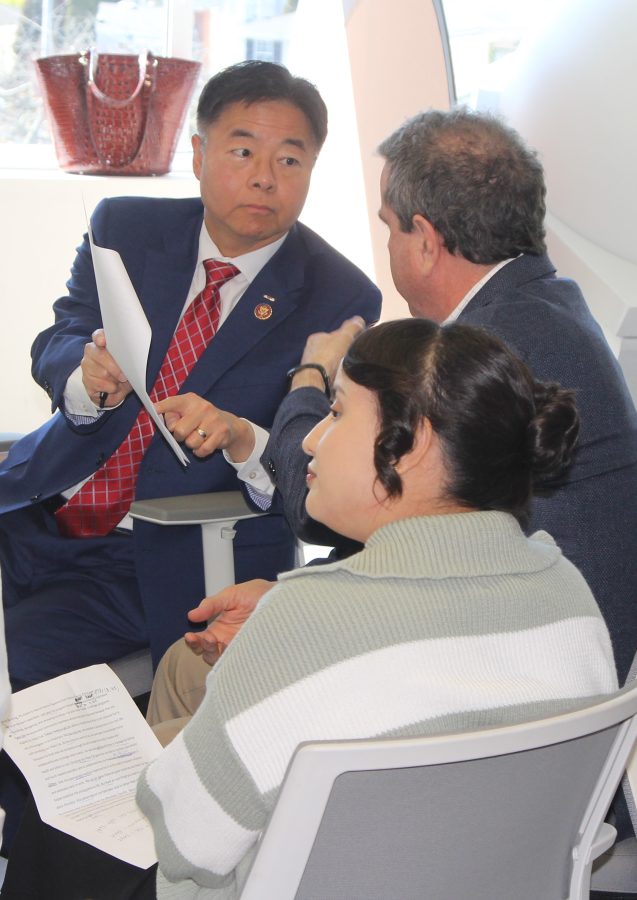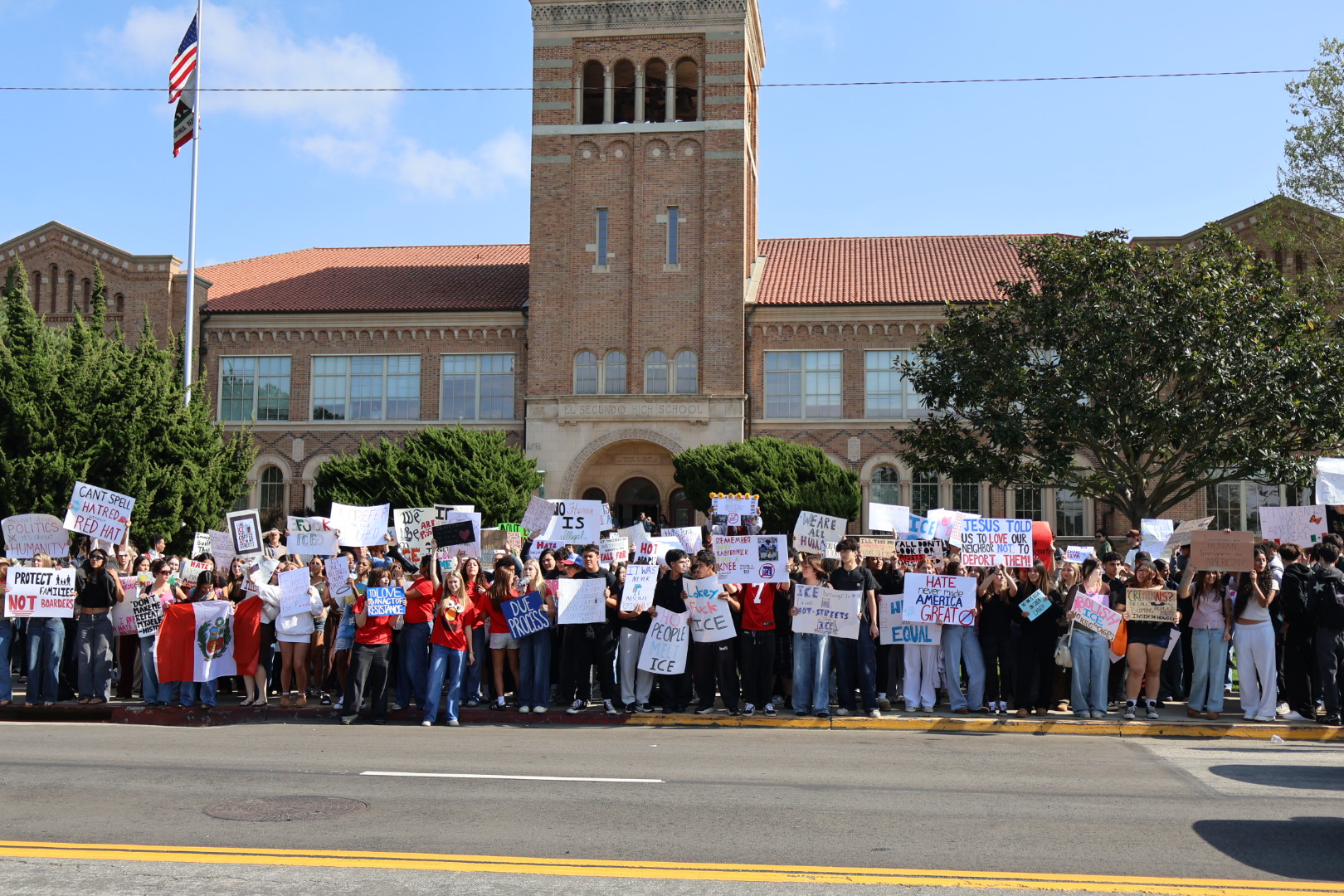Medi-Cal is Medicaid. It was one of the key points made by Congressman Ted Lieu at a “Medicaid Day of Action Roundtable” March 18 when various non-profit representatives gathered to list specific effects of a Congressional budget resolution that calls for $880 billion in cuts – which would have to come from Medicaid.
If three Republicans vote against the final budget, and every Democrat, it would fail.
It also calls for $4.5 trillion in tax cuts “for the super wealthy,” as Lieu described.
He answered a question of, “Then what? If the budget fails,” by saying, “You don’t have to give $4.5 trillion in tax cuts to the super-wealthy. How about $1 trillion instead? … As Abraham Lincoln said, public sentiment is everything. With public sentiment, nothing can fail; without it nothing can succeed.”
Representatives at the roundtable – held in Redondo Beach at allcove Beach Cities on the fourth floor of the former South Bay Hospital – included those from National Alliance on Mental Illness (NAMI), South Bay Children’s Health Center, Redondo Unified School District, Venice Family Clinic, and a Medi-Cal patient and a youth advisory group member from allcove.
Tuesday was the second such event Lieu (D-36th District) has held to push awareness of the threat to Medicaid.
“Some people know intensely how important this is. Most Americans don’t walk around thinking about Medicaid,” he said. “Hopefully there won’t be any cuts.”
“Our families would be devastated without these services,” said South Bay Children’s Health Center therapist Rachel Lloyd, telling of what could be eliminated.
Danielle Duncan-Bernstein, RBUSD special education director, described how the school district uses Medi-Cal funds. Michelle Bholat, a family physician and BCHD boardmember, talked about safety net hospitals in Los Angeles, saying that the potential cuts would lead to overflow at emergency rooms, because people would have nowhere else to turn.
“Folks are on Medi-Cal/Medicaid because they can’t get private insurance,” Lieu said.
Dr. Cesar Barba, medical director for Venice Family Clinic’s South Bay and Inglewood locations, talked about how the non-profit was formed in 1971, and now serves 45,000 patients from Santa Monica to the South Bay.
“Medi-Cal gives them access to routine and preventive care. These proposed changes are existential threats,” Barba said, referring to patients, and the Venice Clinic’s full mission itself.
Paul Stansbury, president of NAMI South Bay, talked about how Medi-Cal removes “barriers” to getting mental healthcare.
Lieu said that he thought the chances are 50/50 this budget could pass, explaining that the bill would only need a majority vote in the House and Senate to go through. It would then need to be signed – or vetoed – by the president.
In further comments from Dr. Bholat, she talked about length and consistency of services; at allcove and otherwise (“allcove” is not capitalized).
“We can’t be one and one,” she said.
She talked about extended wait times.
“Humans suffer without care. And not only them, their caregivers and families,” Dr. Bholat said. “The emergency room is not (intended for this).”
She told of how Medi-Cal covers doctor visit co-payments and some Medicare premiums. In-home support services are covered.
“People would become institutionalized because we haven’t made a rational plan,” she said. “… Medicaid makes America healthy.”
After the roundtable, Lieu fielded questions from the press.
What is the biggest surprise so far in your work in the first two months of the second Trump Administration?
“The president ran on lowering costs, and he’s done nothing on that. I went to two grocery stores yesterday, and neither had any eggs. They’ve fired inspectors and scientists working on bird flu. One of the first things he did, renaming Mt. Denali to Mt. McKinley, that is not lowering costs.”
What is your general sense of optimism or pessimism about the coming months and years of this Trump administration?
“Historically, a president is most popular at the beginning,” Lieu said, noting a Reuters rating of +6 for Trump in the first month, then dropping to -7 “In 30 days. A 13-point flip. This shows the administration’s actions are deeply unpopular. I believe we will flip the House in two years and turn a four-year (strategy) from the White House into a two-year. In the short-term we are (doing these Medicare events).” ER








